2023 By the Numbers
December 20, 2023
By just about any measure, 2023 was a powerful year for Activate and our fellows.
New Fellows and Teams
We welcomed 46 new Activate Fellows—our largest cohort to date—across 39 fellow companies. Of the new cohort, 37 percent are women, two percent are non-binary, 43 percent are founders of color, 13 percent are Hispanic and/or Latina/o/x, 26 percent are Asian, and four percent are multiracial. And we graduated 24 fellows from Cohort 2021.
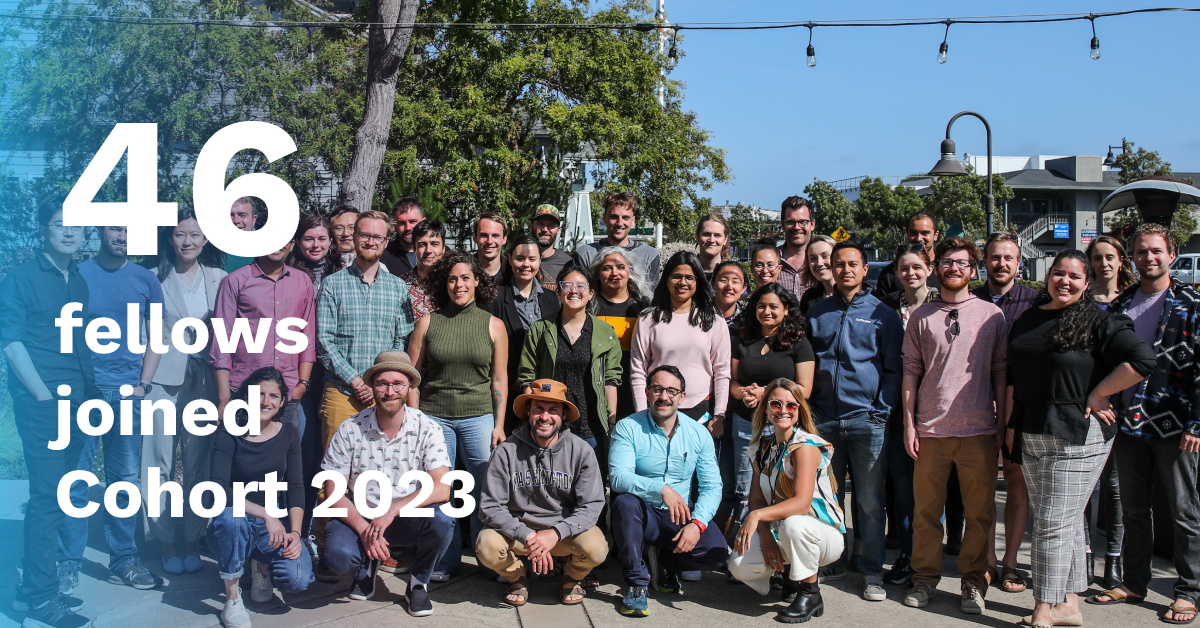
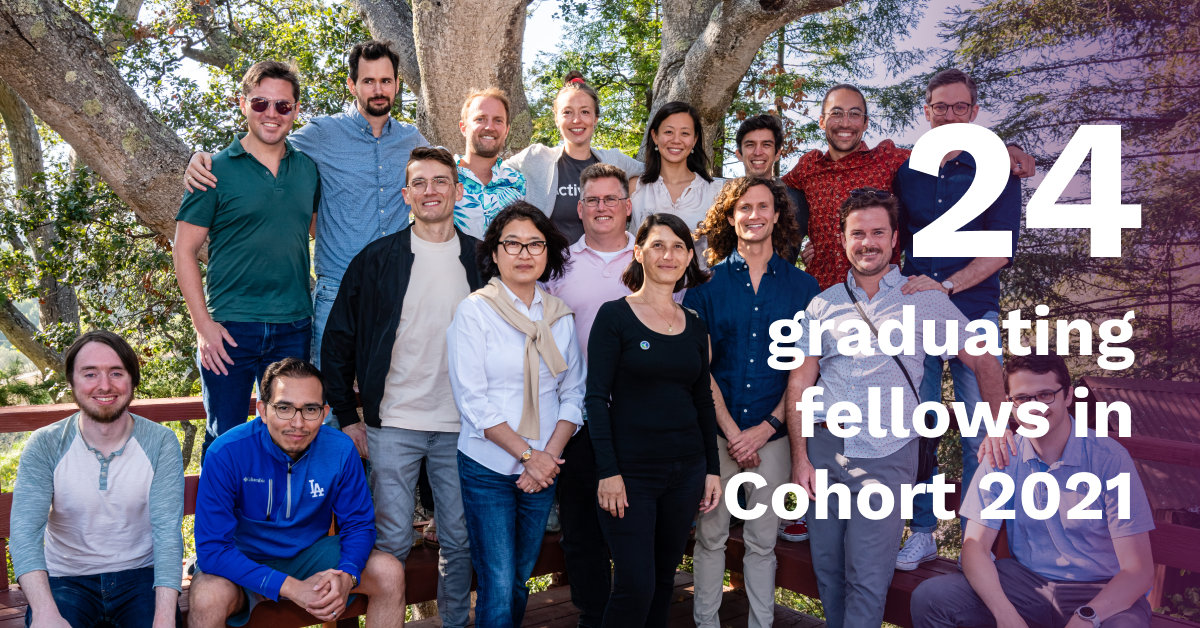
With great enthusiasm, we also welcomed our new CEO, Cyrus Wadia, who took over for interim CEO Todd Johnson. As we move toward doubling our geographic footprint from five to eight communities and aim to grow our reach from 40 to 100 fellows per year, we’re excited for Wadia to lead the organization during this stage of growth and expansion.

We also gained 13 new hires across Activate departments, including three new managing directors. One of those directors, Jeremy Pitts, joined Activate Houston, our newest community launched this year. With Activate Houston, we look forward to our fellows making a direct impact on the clean-energy ecosystem, helping to amplify Houston's role as the world’s emerging clean-energy transition capital. The other new managing directors include Andrés Ochoa C., who joined Activate Anywhere, and Dan Recht, who joined Activate Boston.
Additionally, Activate Fellow companies posted an impressive 600+ job opportunities during the course of 2023.
Getting Noticed
Every year, Activate Fellows get increased recognition for their contributions to science and technology, and 2023 is no exception, with fellows winning 79 awards for their innovative work. Notably, fellows and their companies were featured in a record 241 instances of media coverage, making lists like Norrsken’s 2023 Impact100 list, MIT Tech Review’s 35 Innovators Under 35, Forbes list of 10 Women Founders Taking The Synthetic Biology World By Storm, Fast Company’s top 10 most innovative companies in energy and sustainability, and more. Fellows appeared on 33 podcasts, totaling 1,479 minutes (over 24 hours) of listening time. And Activate Fellows and their companies took part in 130 speaking engagements, created nine new prototypes, and even broke ground for Activate in new subject areas, including cow facial recognition, aerospace, synthetic snail mucus, and fluid dynamics.
True to form, Activate Fellows continued to be thought leaders in science and innovation, making their mark at multiple events in 2023.
At COP28, Activate Fellow alums Tim Latimer (Fervo Energy, Cohort 2018, Cyclotron Road), Andrew Ponec (Antora Energy, Cohort 2018, Cyclotron Road), Kevin Kung (Takachar, Cohort 2018, Cyclotron Road), Leah Ellis (Sublime Systems, Cohort 2020), and Dan Stack (Electrified Thermal Solutions, Cohort 2021) joined the conversation as the COP resolution was reached to transition away from fossil fuels, increase climate finance for the most vulnerable, triple renewables, and double energy-efficiency.
Ellis also testified before the U.S. Senate Committee on Environment and Public Works, where she expressed how the government plays a crucial role as the largest purchaser of concrete and cement. The topic of the hearing was “Opportunities in Industrial Decarbonization: Delivering Benefits for the Economy and the Climate.” Additionally, Vince Romanin (Gradient, Cohort 2017) met President Biden at this year’s White House Demo Day, showcasing innovation spurred by federal investments in research and development. Romanin was a recipient of Defense Production Act funding to manufacture heat pumps in the United States, and Gradient’s heat pumps were one of more than 40 innovations on display.
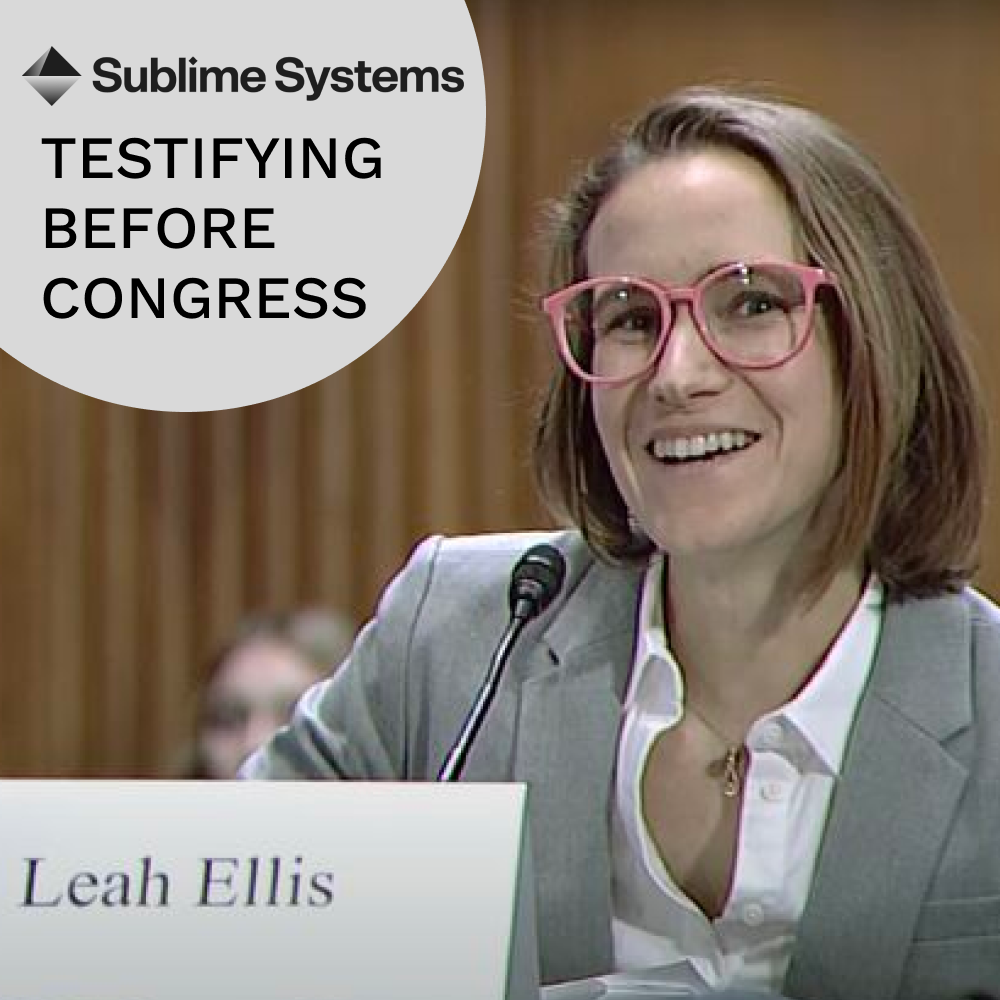
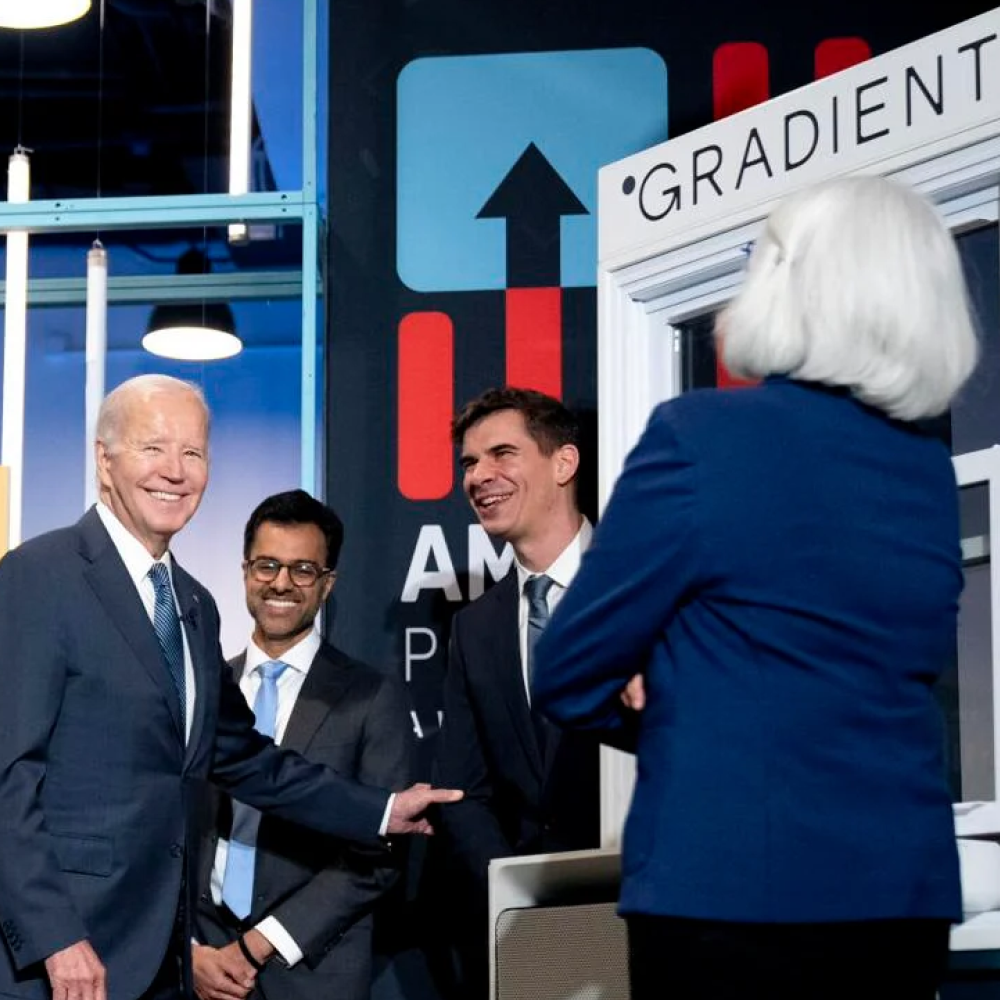
Activate as an organization stayed in the conversation as well, hosting multiple demo, networking, and thought leadership events at Climate Week NYC. We kept a strong presence at the ARPA-E Innovation Summit, and during CERAWeek in Houston, we hosted an Activate community meet-up, bringing together several Activate Fellows and alumni. In January, we hosted an exclusive event in Washington, DC, that brought together federal partners, Activate Fellows, and our team to discuss how to move toward supporting more science entrepreneurs through the Activate Fellowship. In his keynote address during the January event, Erwin Gianchandani, the National Science Foundation’s assistant director for technology, innovation, and partnerships, emphasized: “Activate is the gold standard for entrepreneurial fellowships for scientists.”
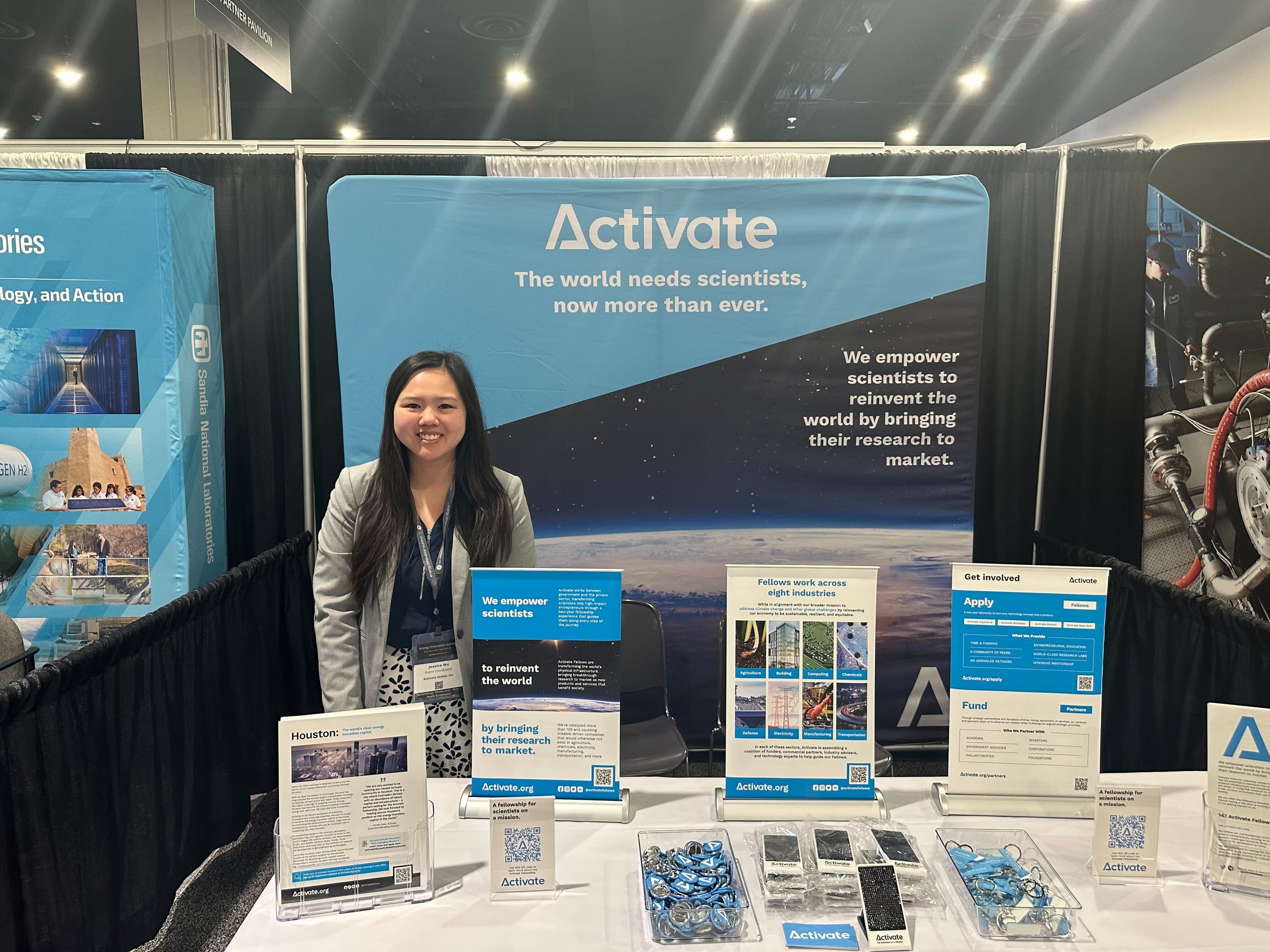
Activate at ARPA-E in March 2023

Activate at ARPA-E in March 2023
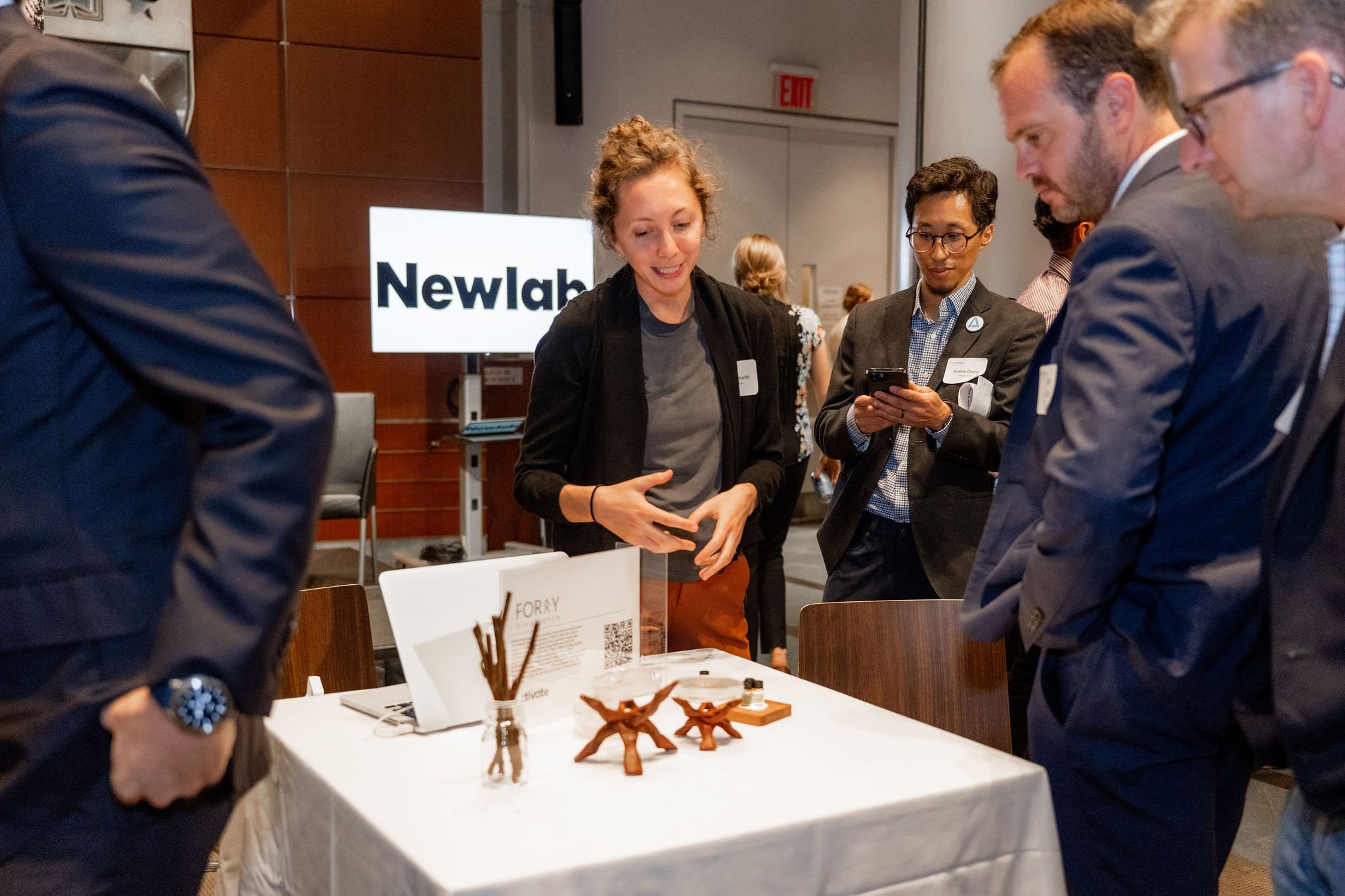
Activate Fellows Demo Hall Showcase at NYC Climate Week, September 2023

Activate Fellows Demo Hall Showcase at NYC Climate Week, September 2023
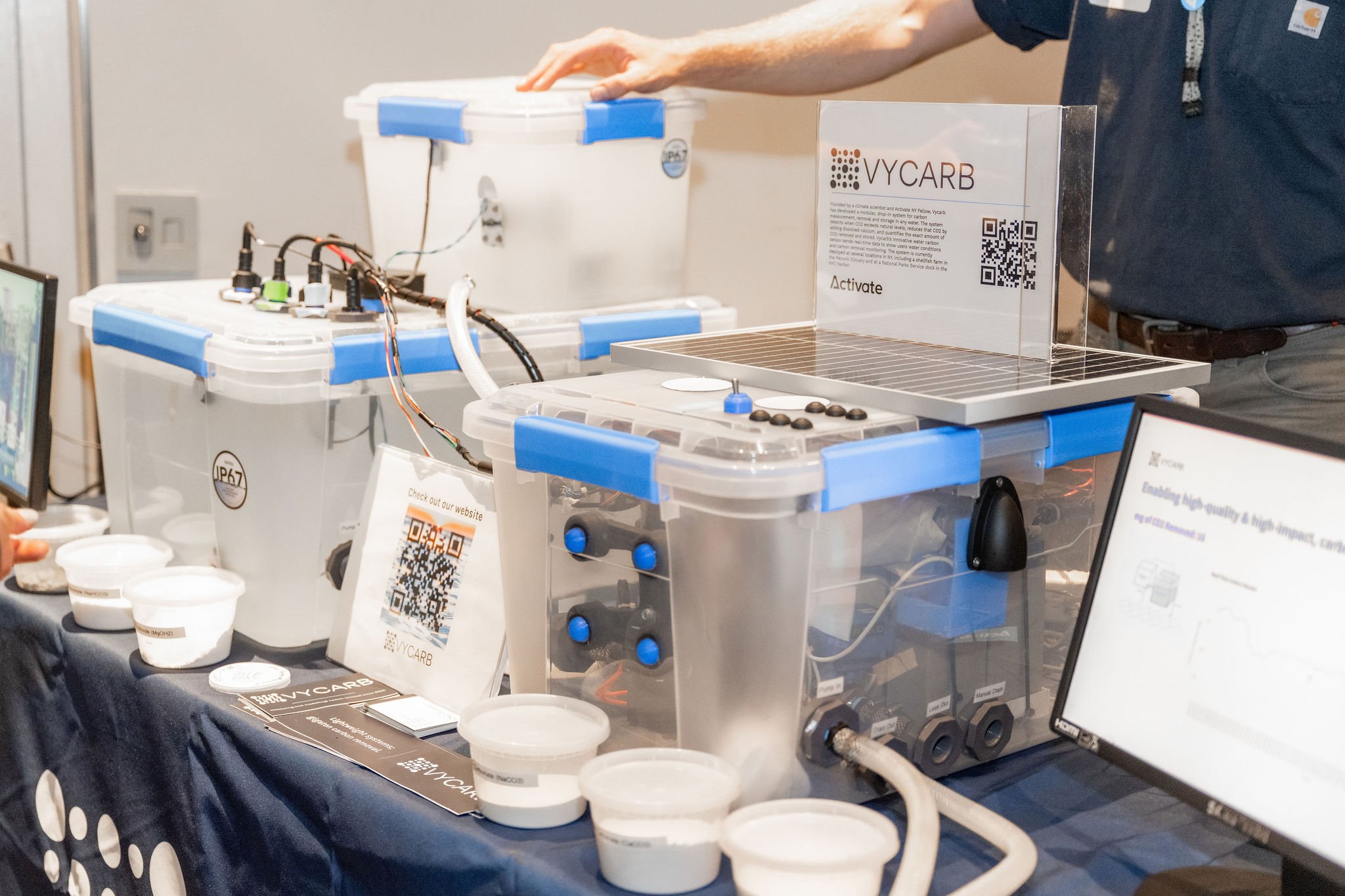
Activate Fellows Demo Hall Showcase at NYC Climate Week, September 2023
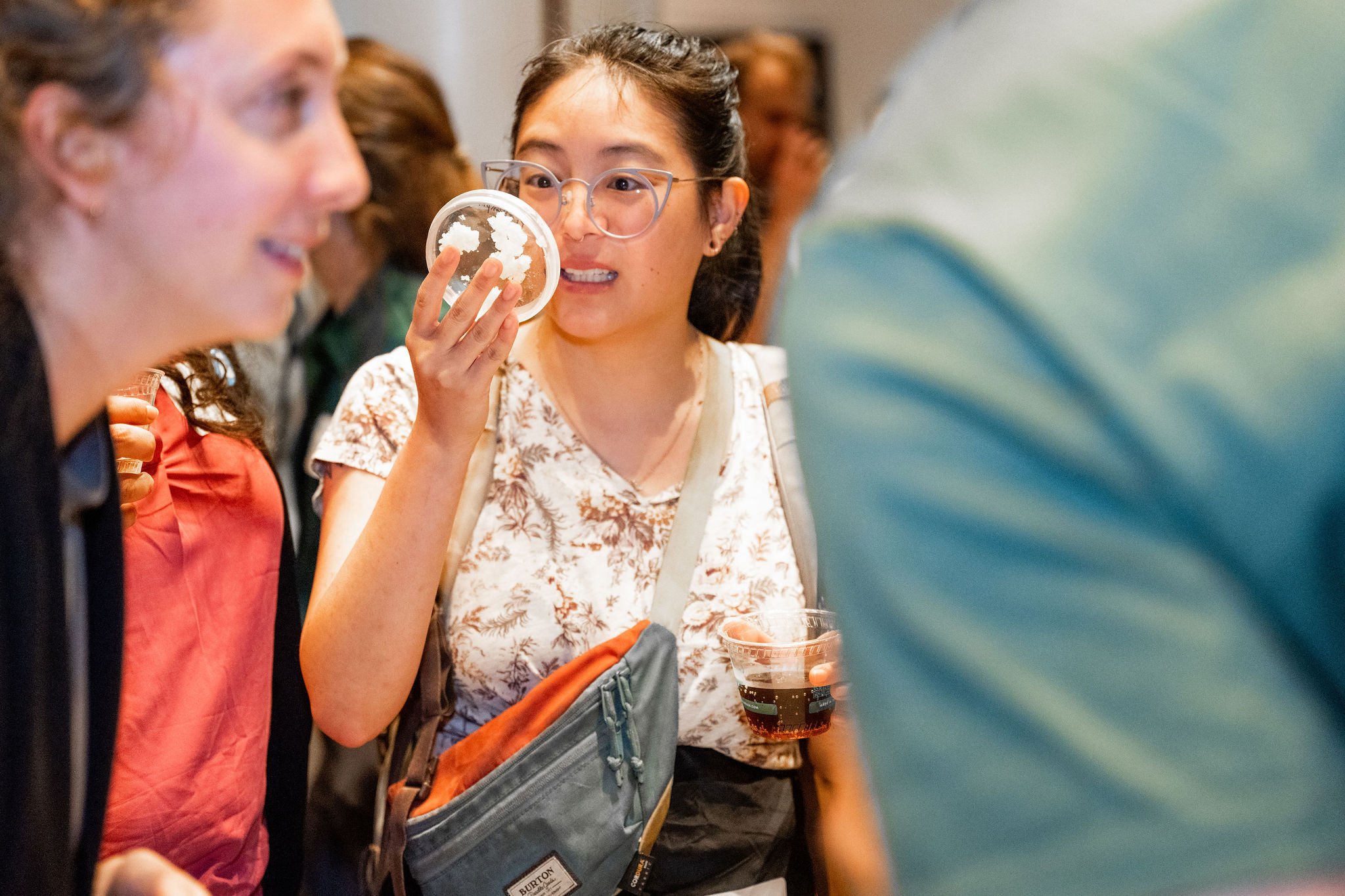
Activate Fellows Demo Hall Showcase at NYC Climate Week, September 2023
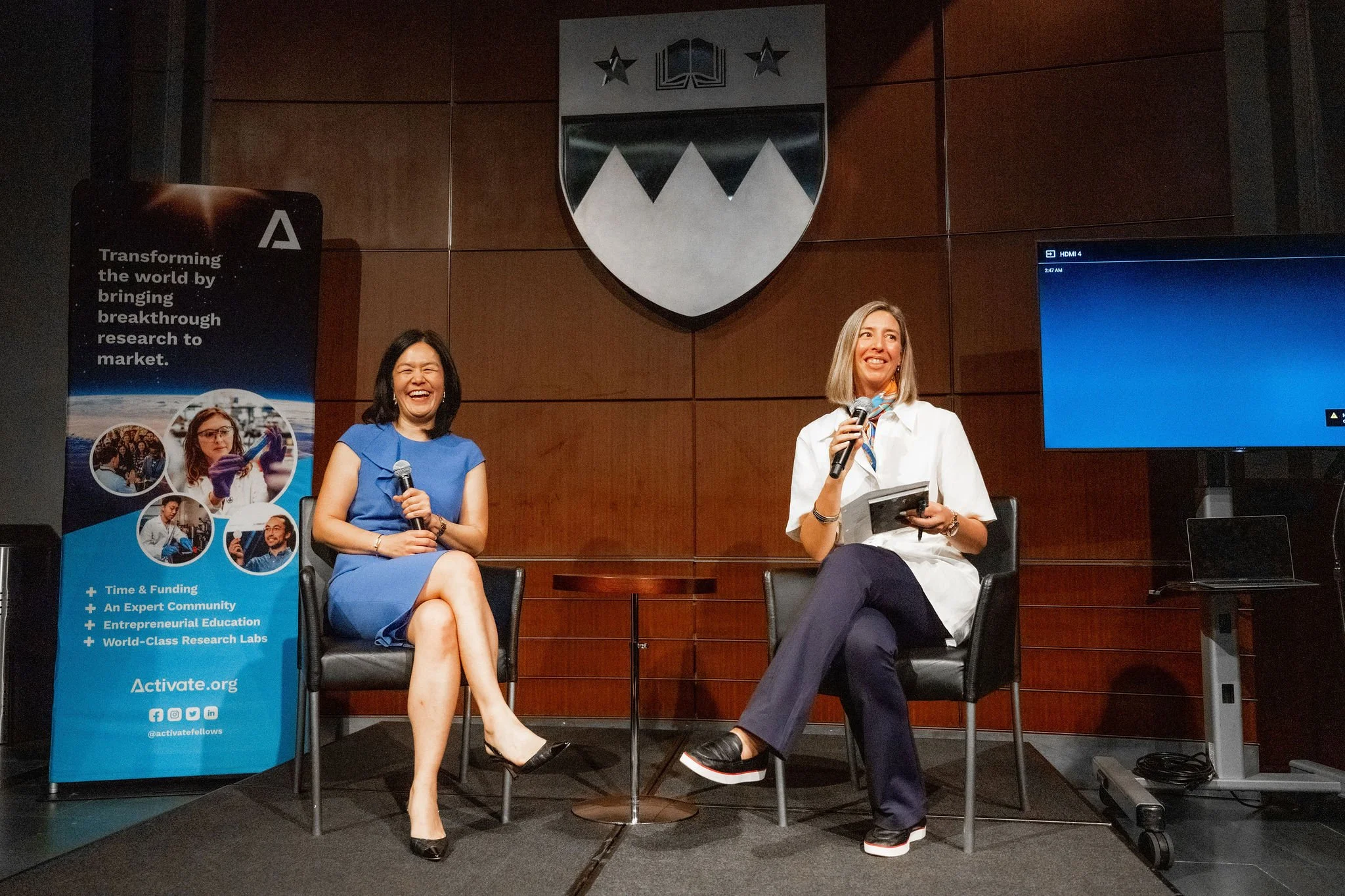
Fireside chat between Dr. Evelyn Wang and Molly Wood at the Activate Fellows Demo Hall Showcase at NYC Climate Week, September 2023
Prospering Partnerships
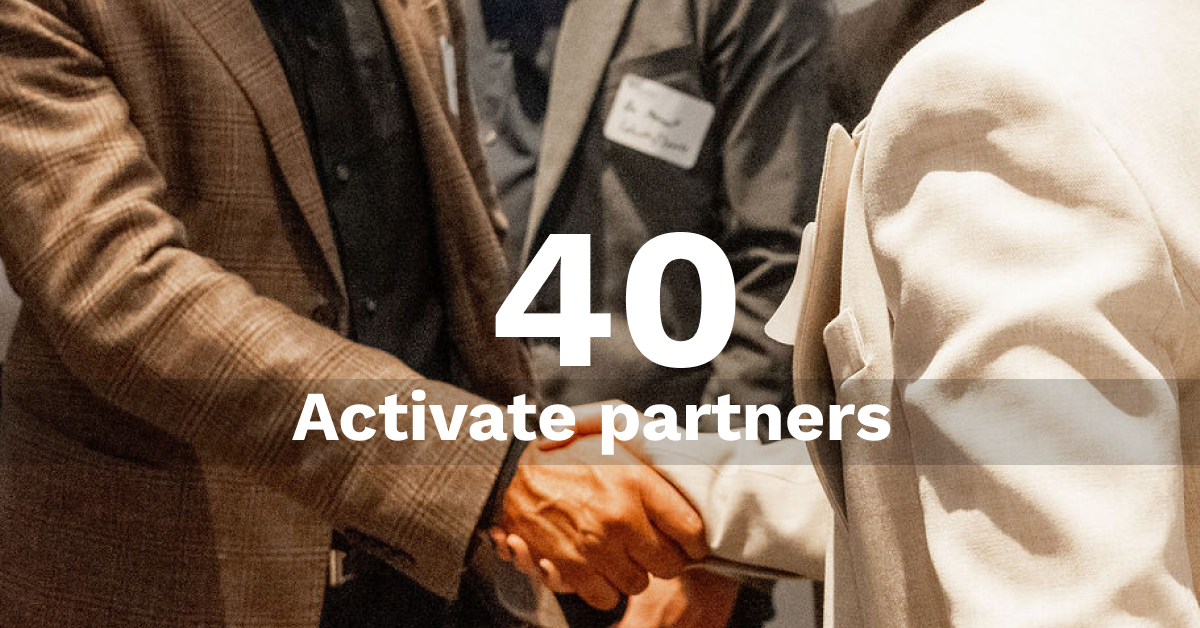
This year, we continued to expand and diversify our partnerships. We worked with 40 partners total, including nine new corporate, government, and philanthropic partners.
Funding Wins
Support for early-stage innovation was strong in 2023, with Activate being named one of 13 semifinalists to receive funding from the U.S. Department of Energy's Office of Fossil Energy and Carbon Management as part of its DAC Energy Programs for Innovation Clusters (EPIC) Prize. With this funding, Activate will layer new, targeted, direct air capture programming into our entrepreneurial fellowship. This will support three to five new direct air capture startups yearly, including direct recruitment of diverse direct air capture founders leveraging generative artificial intelligence and natural language modeling.
Activate fellows raised $263M in total follow-on funding in 2023, $198M of which was dilutive, bringing our all-time total funding raised to $1.4B billion. Some notable rounds closed by our current fellows and alumni include:
Sublime Systems, co-founded by Leah Ellis (Cohort 2020), announced a $40M Series A funding round to continue commercializing Sublime’s decarbonized cement technology. With cement responsible for eight percent of global carbon dioxide emissions, reducing its environmental cost is crucial for achieving net zero.
Chris Graves (Cohort 2018) co-founded Noon Energy to enable long-duration energy storage using carbon and oxygen. With the close of its new $28M Series A, Noon will build demonstration projects to test its ultra-low-cost, energy-dense batteries in the field.
Co-founded by Vince Romanin (Cohort 2017), Gradient announced $18M in Series A financing to design and develop Gradient’s second product, heat pump units for cold climates; focus on solutions for multi-family homes; add services like hardware monitoring, leasing, and demand-response services; and hire for new key roles.
Liminal, co-founded by Andrew Hsieh and Barry Van Tassell (Cohort 2016), announced its $17.5M Series A2 round. The funding will support product industrialization, team growth, and international expansion for its battery insight technology.
Co-founded by Deepak Dugar (Cohort 2015), Visolis raised $8M to continue to enable its use of novel synthetic biology to reduce the cost of bringing new molecules to market, enabling its production of sustainable, carbon-negative ingredients.
Co-founded by Andee Wallace (Cohort 2022), Robigo announced its $7M Seed funding round to demonstrate its product’s efficacy in reducing plant disease in the field and expand its capabilities to address a broader range of crops and diseases.
Co-founded by Timothy Wannier (Cohort 2022), Wild Microbes has raised $3.3M in a pre-seed round. The funding will enable the company to continue to hone its gene-editing approach to create superior production hosts for a wide range of ingredients produced in fermentation tanks.
Arbon (Elvis Cao and Yang Shi, Cohort 2023), Banyu Carbon (Alex Gagnon and Julian Sachs, Cohort 2023), and Vycarb (Garrett Boudinot, Cohort 2022) were awarded a total of $700K in carbon removal purchases by Frontier, an advance market commitment, on behalf of buyers Stripe, Shopify, and H&M Group.
Calion Technologies (Drew Lilley, Cohort 2023) and Eva Technology (Murat Onen, Cohort 2023) each received a $500K award from ARPA-E's CREATE project, which recognizes disruptive energy-related technologies with the potential for large-scale impact.
Getting with the Programming
In keeping with Activate’s spirit of innovation and education, and as a core component of the Activate Fellowship, we led over 243 hours of fellow programming, including five workshops, 18 founder talks, seven executive problem-solving sessions, 16 “All Hands,” and four “Cohort Colloquiums.” We also coordinated an impressive 549 collisions—274 more than in 2022. We classify collisions as any interactions curated between fellows and the technologists, investors, policy experts, and service providers that comprise Activate’s network.
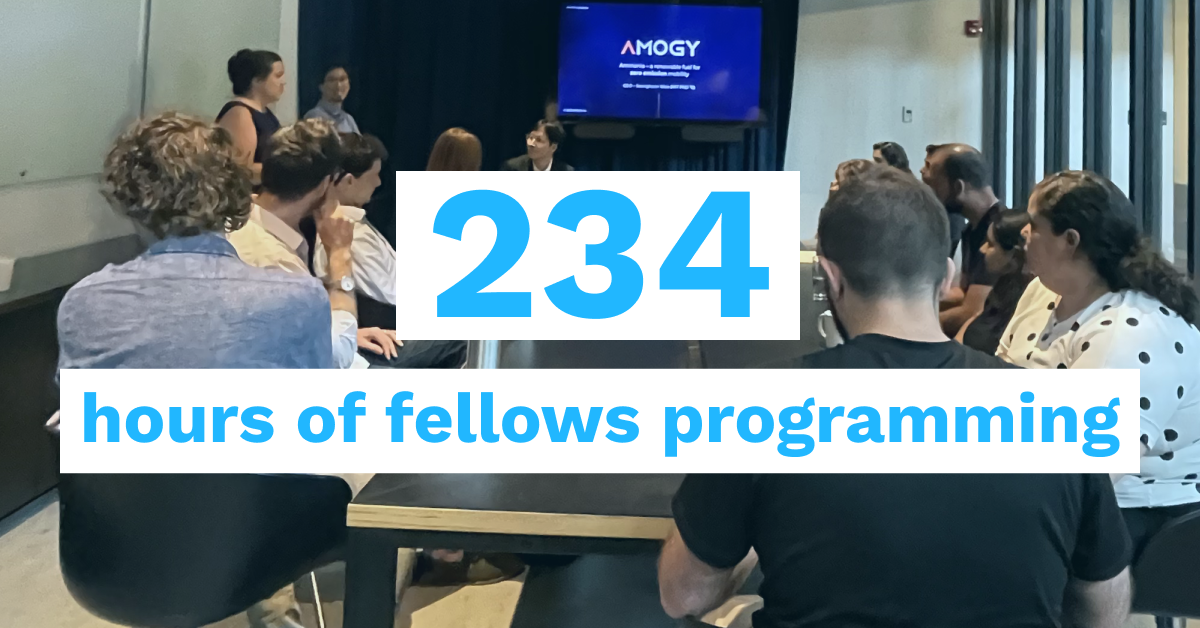
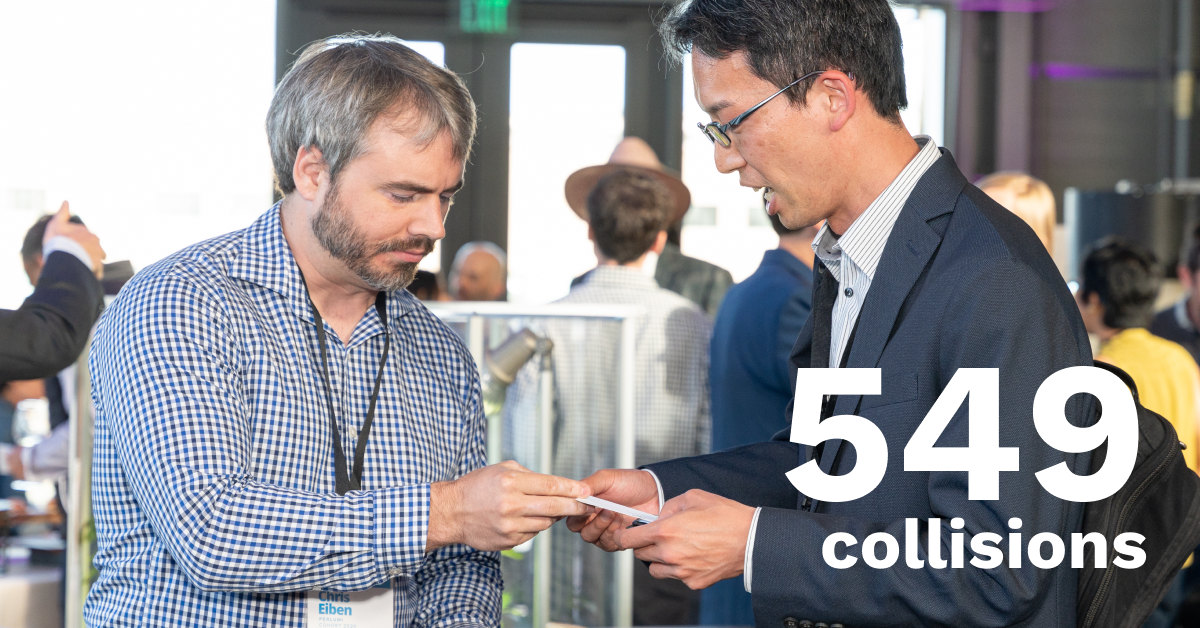
Committed to the Cause
It’s evident that Activate Fellows make a strong impact in the lab, in government, in business, and in other sectors. As our new CEO Cyrus Wadia said, “Our fellows are just the kind of balanced leaders and visionaries who can bring necessary scientific knowledge to these critical sectors and help us all move faster in making real progress in sustainability and climate change.”
We’re excited to see how support for and investments in science and technology innovation will continue to flourish in 2024. Onward and upward!
“Activate is the gold standard for entrepreneurial fellowships for scientists. ”



